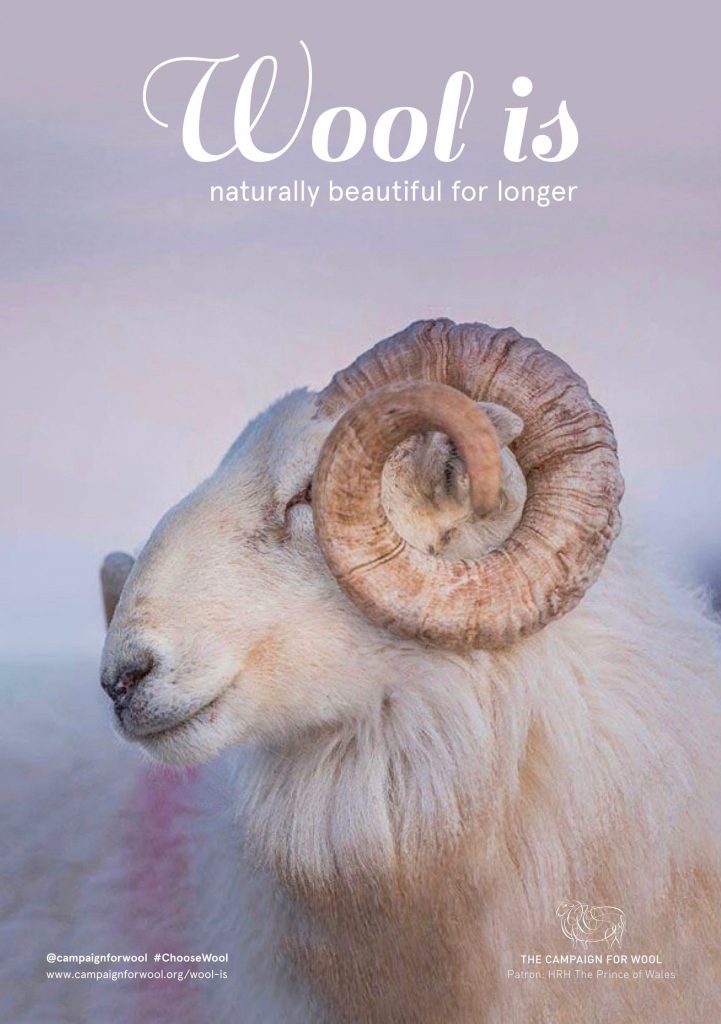Just think of our humble sheep, grazing peacefully in Britain’s lush green countryside, enjoying our little island’s unique temperate climate, cared for by the best sheep farmers in the world. Is it any wonder then that the wool they produce is just so perfect for carpets?
Since it rains quite a lot here, British sheep’s wool has naturally evolved to be fine, thick and strong. Sheep have been populating the UK for thousands of years and today we’ve got more than 60 different breeds. That’s a lot right? A lot more than we thought before writing this article…
And thanks to our rich, mixed terrain, of lowlands, hillsides and mountain tops, the country boasts an incredible variety of wool grades to suit all kinds of British carpet manufacture. What’s more it has excellent dying properties too, enabling an almost limitless selection of beautiful patterns and rich tones to be produced.
So New Zealand sheep’s wool is good as well, but the country only has four different breeds and the environmental cost of importing it over great distances puts it at a disadvantage. And yes, there certainly are wools produced in mainland Europe too, but in country’s like Greece for example, subject to a warmer, Mediterranean climate, the quality will naturally always be inferior. So we’re really not being biased, honest.
Durable
Because our sheep’s bulky wool has a naturally spiraled, crimped structure it has excellent ‘memory’ when twisted into tufts, so it’s highly elastic and doesn’t lose its shape over time. That’s why woolen or wool-rich carpets retain their bounce, their softness and resilience to footfall so well and last so long. In fact, looked after well, a good wool carpet can last as long as 50 years or more.
Renewable and sustainable
Wool is actually keratin, a protein and the key structural material in our hair and nails. So wool carpets are biodegradable and will decompose naturally, generating nutrients without any harmful residues. And of course wool’s the epitome of a renewable resource. As long as there’s sunlight to create grass for grazing, our sheep will produce the wool. Compared to the production of synthetic fibres, the carbon footprint of wool production is negligible.
Insulating
Responsive to the ambient air temperature and humidity, British wool carpets are a great natural insulator too, providing homes and businesses with a vital source of heat and sound insulation. In cold weather they prevent heat loss, while in warm weather they prevent heat rising through the floor. They absorb sound as well, significantly reducing the noise of footfall.
Flame retardant
Wool carpets are also naturally fire retardant. Able to self-extinguish, woolen fibre ignites at much higher temperatures than synthetics, it won’t melt and emits far less noxious fumes. It chars, but doesn’t burn, it’s safer.
Stain-resistant
And contrary to popular belief, wool carpets also offer good stain-resistance, a characteristic that’s due to wool’s naturally waxy coating. And unlike synthetic flooring, woolen flooring is also static-free, meaning that removing dust and dirt by vacuuming is more efficient.
Hypoallergenic
Of course dust is a problem in any home and when it’s floating in the air it can be the cause of allergic reaction. But even here, a British wool carpet will lend a hand. Look after it through regular vacuuming and it won’t stop catching air-borne dust particles in its fibres. It’s a natural air filter that reduces floating dust levels.
So there’s lots of reasons we believe British wool is perfect for carpet making. And we really are blessed to have such a natural, sustainable resource available to us within our shores. And what’s more, it’s Brexit-proof as well.
Image courtesy of Campaign For Wool.

